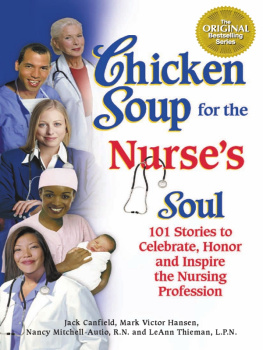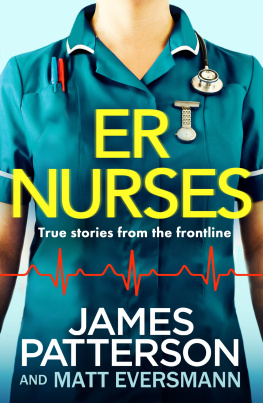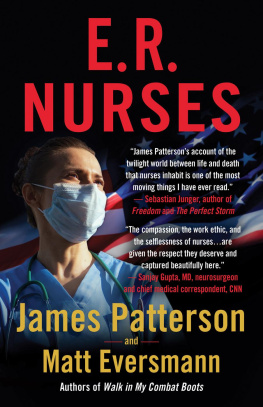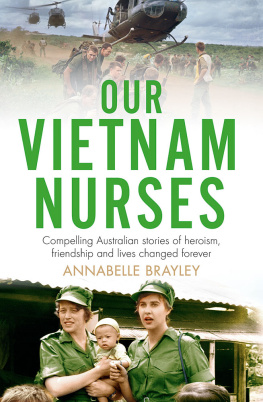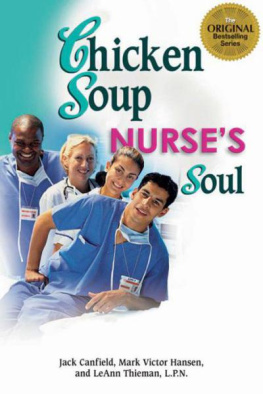Terry Ratner - Reflections on Doctors: Nurses Stories about Physicians and Surgeons (Kaplan Voices Nurses)
Here you can read online Terry Ratner - Reflections on Doctors: Nurses Stories about Physicians and Surgeons (Kaplan Voices Nurses) full text of the book (entire story) in english for free. Download pdf and epub, get meaning, cover and reviews about this ebook. year: 2008, publisher: Kaplan Publishing, genre: Non-fiction. Description of the work, (preface) as well as reviews are available. Best literature library LitArk.com created for fans of good reading and offers a wide selection of genres:
Romance novel
Science fiction
Adventure
Detective
Science
History
Home and family
Prose
Art
Politics
Computer
Non-fiction
Religion
Business
Children
Humor
Choose a favorite category and find really read worthwhile books. Enjoy immersion in the world of imagination, feel the emotions of the characters or learn something new for yourself, make an fascinating discovery.
- Book:Reflections on Doctors: Nurses Stories about Physicians and Surgeons (Kaplan Voices Nurses)
- Author:
- Publisher:Kaplan Publishing
- Genre:
- Year:2008
- Rating:4 / 5
- Favourites:Add to favourites
- Your mark:
- 80
- 1
- 2
- 3
- 4
- 5
Reflections on Doctors: Nurses Stories about Physicians and Surgeons (Kaplan Voices Nurses): summary, description and annotation
We offer to read an annotation, description, summary or preface (depends on what the author of the book "Reflections on Doctors: Nurses Stories about Physicians and Surgeons (Kaplan Voices Nurses)" wrote himself). If you haven't found the necessary information about the book — write in the comments, we will try to find it.
Terry Ratner: author's other books
Who wrote Reflections on Doctors: Nurses Stories about Physicians and Surgeons (Kaplan Voices Nurses)? Find out the surname, the name of the author of the book and a list of all author's works by series.
Reflections on Doctors: Nurses Stories about Physicians and Surgeons (Kaplan Voices Nurses) — read online for free the complete book (whole text) full work
Below is the text of the book, divided by pages. System saving the place of the last page read, allows you to conveniently read the book "Reflections on Doctors: Nurses Stories about Physicians and Surgeons (Kaplan Voices Nurses)" online for free, without having to search again every time where you left off. Put a bookmark, and you can go to the page where you finished reading at any time.
Font size:
Interval:
Bookmark:
Reflections on Doctors
Nurses Stories about
Physicians and Surgeons

Terry Ratner, RN, MFA
EDITOR

Contents
Karen Klein, RN
Nancy Leigh Harless, NP
Adrienne Zurub, RN , MA , CNOR
Cheryl Dellasega, PD
Cara Muhlhahn, CNM
Emily J. McGee, RN
Mindy Owen, RN , CPRM , CCM
Bonnie Jarvis-Lowe, RN
Angela Posey-Arnold, RN , BSN
Keith Carlson, RN
Carolyn Lounsbury, LPN
Pamela F. Gonzalez, RN
Kathy Quan, RN , BSN , PHN
Anna Gregory, RGN , BSc
Tilda Shalof, RN , BScN
Paula Sergi, RN , MFA
Heidi Lipka, RN
Cortney Davis, MA , RNC , APRN
Terry Ratner, RN , MFA
No man, not even a doctor, ever gives any other definition of what a nurse should be than thisdevoted and obedient. This definition would do just as well for a porter. It might even do for a horse.
Florence Nightingale, 1859
N URSING HAS BEEN called the oldest of arts and the youngest of professions. The number of nurses worldwide totals more than 11 million, yet this profession is still difficult to describe and continues to be poorly understood by nurses, physicians, and the public in general.
In 1859, Florence Nightingale wrote, The elements of nursing are all but unknown. While this statement remains true in a sense even now, the roles and responsibilities of nurses and physicians have been refined considerably.
The nursing profession has evolved over time, and with it, the scope of a nurses distinct responsibilities. The role of a nurse has long been defined in relation to physicians; they were bound at the hip, which limited nurses scope of practice and autonomy. With different educational paths and scopes of practice, nurses and physicians now work side by side.
The word doctor stems from the earliest role doctors had with nurses the role of teacher (the Latin meaning of doctor). Before 1929, a major portion of a nurses teachings were done by doctors. In the 1940s nurses started to vocalize their feelings about nursing care and their need to distinguish themselves in the medical profession. They began to concentrate on the needs of a patient, a focus much different from the one of handmaiden to a physician.
Whether we call them doctors or physicians, whether we think of them as teachers or as healers, they are vital team players in todays healthcare industry. The relationship between the fraternity of doctors, once a rigid hierarchy that placed physicians firmly in charge, and the sorority of nurses has changed throughout the years.
Reflections on Doctors is an anthology about nurses and physicians inseparably intertwined in a variety of settings, yet distinctly different in their specific roles. The distinctions are clear patient outcomes are dependent upon the physicians skills in diagnosing and the nurses continuous observations and their ability to communicate the right information to the appropriate care provider.
The nurses who have contributed to this important anthology represent a spectrum of voices and perspectives. Nurses, some doctors themselves by virtue of a PhD, reflect upon their work alongside physicians. Some have been in nursing for decades, while others are newer to the field. Some have had only positive working relationships, while others have experienced some bumps along the way. The majority of these nurses have witnessed considerable changes in the nurse-physician relationship over time. They are our messengers, our heroes, and our scribes.
Their voices are frustrated at times, often controversial, but seldom sentimental. The sharing of their stories contributes to the revolutionary change in our image of nurses; instead of responding to authority with unquestioning obedience, nurses are trained to question, seek answers, and to express themselves verbally.
This diverse collection of essays, written in remarkable prose, contains intimate nursing notes, not found in textbooks or in a patients chart. Nurses reveal their experiences with honesty, compassion, and a genuine concern for their profession. They cover a variety of themes, from the role of nurses and physicians to the scope of their respective practice.
Keith Carlson and Angela Posey-Arnold write about strong leadership and how it impacts a health organization. Karen Klein dares to write about the consequences of deferring to a doctors authority and standing up for what she believes in. Youll find nurses like Heidi Lipka and Carolyn Lounsbury who use humor as an antidote for headstrong doctors. Pamela Gonzalezs Smart Enough Not to Be a Doctor portrays public perceptions of nurses and doctors, while Nancy Leigh Harless writes about the misconceptions nurses have about doctors. Defined roles for physicians and nurses are addressed by Anna Gregorys and Cara Muhlhahns fine essays.
In these pages, nurses reveal themselves as fully human as they talk about their personal relationships with doctors, the doctor-patient relationship, and the importance of feeling comfortable with patients emotional needs. One provocative essay follows a patients descent into the world of illness a story, according to Cortney Davis, caregivers rarely hear. Youll find nurses like Adrienne Zurub writing about the dynamics of gender, the encompassing fog of testosterone, and how it affects the bond between nurses and doctors. The stories in this anthology bring readers behind closed doors, into the OR, to the bedside, and to the ambulantas in the fields of Kosovo.
A readers guide, providing opportunities for further discussion of these provocative stories, is located in the back of the book. This is an ideal way for readers to hold a meeting of the minds and begin crucial conversations in hopes of increasing their understanding of the nurse-physician relationship.
Whether youre a new grad, seasoned nurse, or someone interested in understanding the dynamics of communication between physicians and nurses, youll have a front row seat under the big top of our healthcare arena a view of the past and present, and a glimpse of the future. Welcome to our world, Reflections on Doctors: Nurses Stories about Physicians and Surgeons . We hope it pleases, shocks, surprises, and astounds you .

Karen Klein, RN
I N MY 24 years as a nurse I have refused doctors orders on only two occasions. Refusal to carry out a doctors order is the right of every nurse who feels the order is not appropriate. Doctors always have the right to carry the order out themselves, if they so choose, while the nurse should chart the refusal and the reason.
The first occasion was when I worked in a small, six-bed surgical step-down unit for patients who were too well for intensive care (ICU), but needed more monitoring than could be provided on a general surgical unit. It was a two-room unit male and female with three beds per room, connected by a short, narrow hallway. One nurse was assigned to each room. The nurses desk was literally in the same small room with the patients.
I worked the 8 pm 8 am shift. One night I had a male patient who had just had a triple bypass the day prior but had done so well that he was moved to our unit. All night I noted he slept well. In hospital speak this means he got four solid hours of sleep. At one point he had removed his oxygen nasal cannula for comfort, so I was sure to monitor his oxygen levels via a pulse oximeter, which I had previously applied like a Band-Aid to one fingernail. His oxygen levels remained stable. He was in no distress. In the morning, I assisted him out of bed and he did his ablutions with minimal assistance, never requiring oxygen nor becoming short of breath. He did his post-heart surgery spirometer exercises with no problem.
Next pageFont size:
Interval:
Bookmark:
Similar books «Reflections on Doctors: Nurses Stories about Physicians and Surgeons (Kaplan Voices Nurses)»
Look at similar books to Reflections on Doctors: Nurses Stories about Physicians and Surgeons (Kaplan Voices Nurses). We have selected literature similar in name and meaning in the hope of providing readers with more options to find new, interesting, not yet read works.
Discussion, reviews of the book Reflections on Doctors: Nurses Stories about Physicians and Surgeons (Kaplan Voices Nurses) and just readers' own opinions. Leave your comments, write what you think about the work, its meaning or the main characters. Specify what exactly you liked and what you didn't like, and why you think so.


